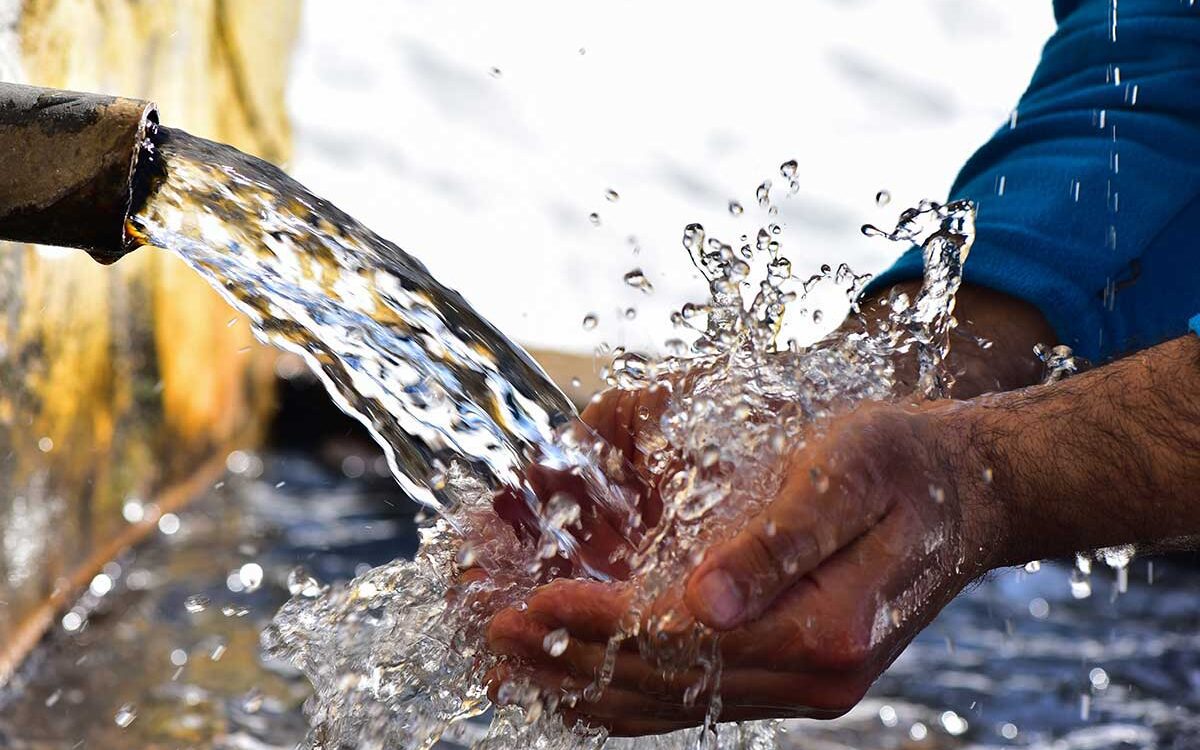Water is a fundamental resource for life and sustainable development. From food production to energy generation, passing through health and basic sanitation, water is a necessity for humanity. However, despite its importance, water is a finite and scarce resource, and its inadequate management can lead to serious environmental, economic and social consequences.
Proper water management is essential to achieving many of the United Nations Sustainable Development Goals (SDGs). SDG 6, for example, aims to ensure the availability and sustainable management of water and sanitation for all by 2030, and water is also the theme directly related to other SDGs, such as poverty eradication, food security, clean energy and accessible, health and well-being, life in water, life on land, among others.
Agriculture
The relationship between water and food security is critical and understandable: agriculture is the main consumer of fresh water in the world.
– An estimated 70% of fresh water taken from the environment is used to irrigate food crops to meet the growing world demand and for this reason, poor water management in agriculture can lead to negative impacts on food production and access to food.
– The water used in agriculture can still affect the quality of the soil and water bodies, due to the excessive use of fertilizers and pesticides.
– Irrigation can result in salinization of the soil, reducing its fertility and harming crop production.
Proper water management in agriculture can reduce these negative impacts and increase crop productivity.
According to the Food and Agriculture Organization of the United Nations (FAO), water consumption in agriculture is expected to increase by about 19% by 2050 to meet population growth and demand for food. This means that sustainable water management in agriculture is an urgent issue.
The reuse of water in agriculture can also bring benefits to the economy and the environment. The water used in irrigation can be treated and reused in other activities, such as energy production, reducing the pressure on water resources. This practice can help reduce production costs and contribute to environmental sustainability.
Urban Development
Urban development is one of the biggest challenges for proper water management, as cities are major consumers of this natural resource. According to the United Nations (UN), in 2050, about 68% of the world's population will be living in urban areas. This population growth brings with it a growing demand for urban services, such as drinking water, basic sanitation and energy.
However, poor water management in urban areas can lead to problems such as water scarcity, flooding and pollution of water resources. It is estimated that more than 2 billion people on the planet live in urban areas with limited access to clean water and adequate sanitation. In addition, disorderly urbanization and unbridled population growth can lead to excessive water consumption, increasing pressure on available water resources.
To deal with these challenges, integrated water management in urban areas must consider the conservation and recovery of water resources, the reduction of potable water consumption and the improvement of water quality. This can be achieved through public policies and programs that encourage the adoption of sustainable water management technologies and practices, such as rainwater harvesting, water reuse and recovery of treated sewage water.
A successful example of integrated water management in urban areas is the city of Singapore. The city has taken a holistic approach to water management, which includes rainwater harvesting, water reuse and wastewater treatment to produce potable water. With these initiatives, Singapore achieved water self-sufficiency of 200%, that is, the city produces more water than it consumes, even though it is a highly urbanized country with scarce water resources.
Energy
Energy and water management are closely linked, as energy production consumes large amounts of water and lack of water can limit energy production. Energy production also depends on the use of water to generate electricity, whether through hydroelectric, thermoelectric or nuclear power plants.
However, energy production can be affected by the lack of water, as occurs in periods of drought, which can reduce the flow of water in rivers and lakes, reducing the production of hydroelectric energy. Lack of water can still affect the cooling of turbines and reactors, leading to safety issues and reduced energy efficiency.
Efficient water management is crucial to ensuring a sustainable future for the planet and future generations. Water is a valuable and limited resource, and its proper management is essential to ensure its availability for the population and for ecosystems. We must adopt an integrated and sustainable approach to water management, promoting sustainable practices and innovative technologies that reduce water waste, pollution and overuse. Only in this way can we guarantee a future in which water is available to everyone, and that it is used responsibly and efficiently.




